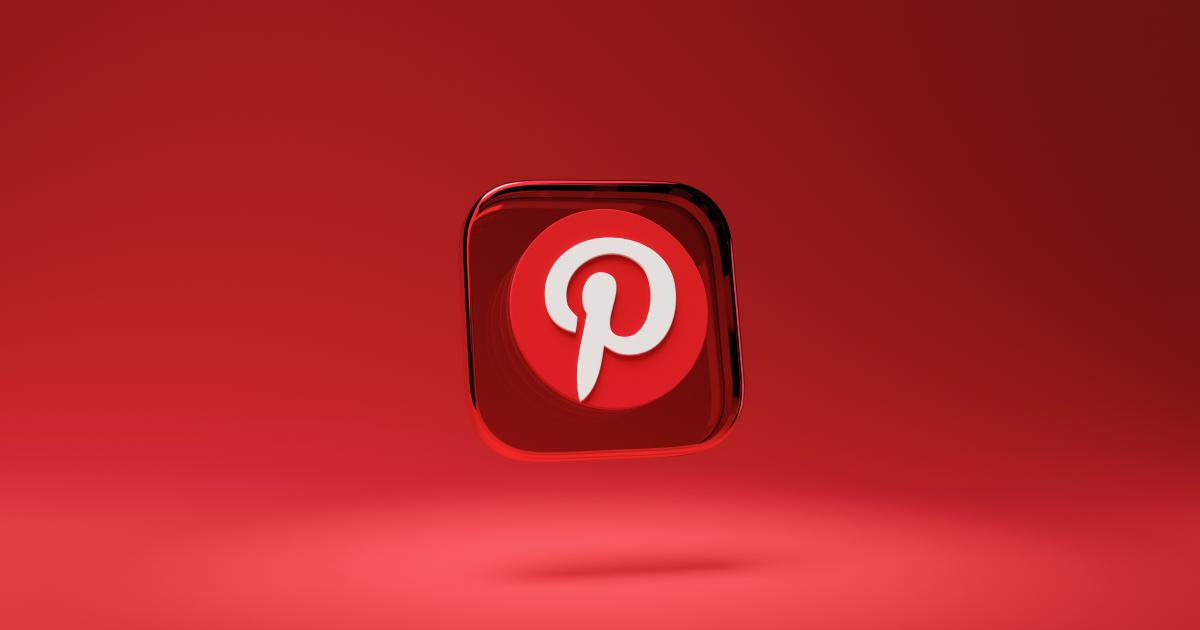Guest Posting vs. Paid Link Building: Weighing the Pros and Cons


The Evolving World of Digital Marketing
In the ever-changing landscape of digital marketing, two strategies have emerged as prominent players in the quest for online visibility and authority: guest posting and paid link building. Both methods have their own unique advantages and disadvantages, and navigating the nuances of each can be a challenge for businesses and marketers alike.
As search engine algorithms become increasingly sophisticated, the importance of building a strong online presence has never been more crucial. Businesses must constantly adapt their strategies to stay ahead of the competition and maintain a robust digital footprint. This article delves deep into the world of guest posting and paid link building, examining the pros and cons of each approach to help you make an informed decision on the best path forward for your digital marketing efforts.
Understanding Guest Posting
Guest posting, also known as guest blogging, is the practice of creating and publishing content on a website or blog that is not your own. This can be done through outreach to other industry-relevant websites, where you pitch a topic or idea for a guest post that aligns with the site's content and audience.

The Benefits of Guest Posting
1. Increased Visibility and Reach Guest posting allows you to tap into a new audience, potentially exposing your brand, products, or services to a wider pool of potential customers or clients. By appearing on reputable, industry-relevant websites, you can significantly expand your online reach and establish your expertise within your niche.
2. Improved Brand Authority and Credibility When you contribute content to a well-established website, it can boost your brand's authority and credibility in the eyes of your target audience. This can lead to increased trust, which can ultimately translate into better engagement, higher conversion rates, and more lucrative business opportunities.
3. Valuable Backlinks One of the primary benefits of guest posting is the opportunity to secure high-quality backlinks to your website. These backlinks not only improve your website's search engine optimization (SEO) but also drive referral traffic, further enhancing your online visibility and authority.
4. Networking and Relationship Building Guest posting often involves outreach and collaboration with other industry professionals and website owners. This can lead to valuable networking opportunities, potential partnerships, and a strengthening of your professional relationships within your industry.
The Challenges of Guest Posting
1. Time-Consuming Process Securing guest posting opportunities can be a time-intensive process. It often involves researching relevant websites, crafting personalized pitches, and then creating high-quality content that meets the host site's guidelines and standards.
2. Potential for Rejection Not every guest post pitch will be accepted, and you may face a significant number of rejections before securing a guest posting opportunity. This can be discouraging and may require a significant investment of time and effort.
3. Quality Control Concerns It's crucial to ensure that the websites you contribute to maintain a high level of quality and credibility. Poorly managed or low-quality websites can have a negative impact on your own brand's reputation and search engine rankings.
4. Lack of Control over Content When guest posting, you relinquish a certain degree of control over the final published content. The host website may make editorial changes or require revisions that could alter the intended message or tone of your work.
Understanding Paid Link Building
Paid link building, on the other hand, involves the purchase of backlinks from other websites, either through direct negotiations or through link-building service providers. This strategy aims to improve a website's search engine rankings by increasing the quantity and quality of incoming links.

The Benefits of Paid Link Building
1. Faster Results Compared to guest posting, which can be a time-consuming process, paid link building can deliver more immediate results in terms of boosting search engine rankings and visibility. This can be particularly beneficial for businesses that need to see a quick return on their marketing investments.
2. Increased Control over Backlink Profiles With paid link building, you have more control over the type, quality, and placement of the backlinks you acquire. This allows you to strategically build a backlink profile that aligns with your SEO objectives and target keywords.
3. Scalability and Efficiency Paid link building services often provide a more scalable and efficient approach to building backlinks, as they can leverage their existing relationships and networks to secure links on your behalf.
4. Targeted Keyword Optimization Paid link building campaigns can be tailored to target specific keywords or focus areas, helping to improve the relevance and effectiveness of your backlink profile.
The Challenges of Paid Link Building
1. Potential Risks of Penalty Search engines, such as Google, have become increasingly vigilant in detecting and penalizing websites that engage in manipulative or unnatural link-building practices. Purchasing low-quality or irrelevant backlinks can result in a significant drop in search engine rankings and even the imposition of penalties.
2. Lack of Transparency and Trust Some paid link-building services may lack transparency in their methods or may provide questionable backlinks that do not align with best practices. This can erode trust and potentially harm your website's reputation.
3. Higher Costs Compared to guest posting, which can be a more cost-effective strategy, paid link building often requires a more significant financial investment, especially if you are working with high-quality, reputable service providers.
4. Potential for Diminishing Returns As search engine algorithms continue to evolve, the impact of paid links on search engine rankings may diminish over time. This can lead to a scenario where the ongoing costs of paid link building outweigh the perceived benefits.
Weighing the Pros and Cons: Guest Posting vs. Paid Link Building
Now that we've explored the key aspects of guest posting and paid link building, let's dive deeper into the pros and cons of each approach and how they compare.
Credibility and Authority
Guest Posting Advantages: Guest posting on reputable, industry-relevant websites can significantly boost your brand's credibility and authority. The association with these high-quality domains can lend credibility to your own website and content, enhancing your reputation in the eyes of your target audience.
Paid Link Building Challenges: While paid link building can provide a quick boost to your backlink profile, the lack of inherent credibility and authority associated with purchased links can be a drawback. Search engines may view these links as less valuable or even suspicious, potentially leading to a decline in credibility and trust.

Search Engine Optimization (SEO) Impact
Guest Posting Advantages: High-quality backlinks obtained through guest posting can have a significant positive impact on your website's SEO performance. These links not only improve your search engine rankings but also drive referral traffic, further enhancing your online visibility and authority.
Paid Link Building Advantages: Paid link building can provide a more immediate and targeted SEO boost, allowing you to strategically build a backlink profile that aligns with your specific keywords and SEO objectives. This can be particularly beneficial for businesses that need to see quick results.
Paid Link Building Challenges: However, the potential risk of search engine penalties looms large in the world of paid link building. Acquiring low-quality or irrelevant backlinks can result in a significant decline in search engine rankings, potentially undoing any short-term gains.

Relationship Building and Networking
Guest Posting Advantages: Guest posting often involves outreach and collaboration with other industry professionals and website owners. This can lead to valuable networking opportunities, potential partnerships, and a strengthening of your professional relationships within your industry.
Paid Link Building Challenges: Paid link building, on the other hand, lacks the same level of relationship-building opportunities. While it may provide a more efficient path to acquiring backlinks, it does not inherently foster the same level of industry connections and collaborative potential.

Time and Resource Investment
Guest Posting Advantages: Guest posting can be a more cost-effective strategy compared to paid link building, as it typically requires a smaller financial investment. However, it can be a more time-consuming process, involving research, outreach, and content creation.
Paid Link Building Advantages: Paid link building, on the other hand, can provide a more streamlined and efficient approach to building backlinks, as it often involves working with established service providers who can leverage their existing relationships and networks.
Paid Link Building Challenges: The higher costs associated with paid link building can be a significant drawback, especially for smaller businesses or those with limited marketing budgets.

Striking the Right Balance: Integrating Guest Posting and Paid Link Building
Given the pros and cons of each approach, the optimal strategy often lies in striking a balance between guest posting and paid link building. By leveraging the strengths of both methods, you can create a comprehensive and effective digital marketing campaign that addresses your specific needs and goals.
Incorporating a Hybrid Approach
One effective approach is to implement a hybrid strategy that combines the benefits of guest posting and paid link building. This could involve:
Prioritizing Guest Posting: Focus the majority of your efforts on securing high-quality guest posting opportunities that align with your industry and target audience. This can help build your brand's credibility, authority, and organic backlink profile.
Supplementing with Paid Link Building: Complement your guest posting efforts with a strategic and well-researched paid link building campaign. This can help you target specific keywords, fill gaps in your backlink profile, and achieve faster short-term results.
Continuous Monitoring and Adjustment: Regularly monitor the performance and impact of both your guest posting and paid link building efforts. Adjust your strategy as needed to ensure optimal results and maintain compliance with search engine guidelines.

By integrating these two approaches, you can leverage the strengths of each to create a more comprehensive and effective digital marketing strategy. This balanced approach can help you build a robust online presence, enhance your brand's credibility, and improve your search engine rankings over the long term.
Implementing Effective Guest Posting and Paid Link Building Strategies
To ensure the success of your guest posting and paid link building efforts, it's essential to follow best practices and implement strategic techniques.
Guest Posting Best Practices
Identify Relevant and High-Quality Websites: Thoroughly research and vet potential guest posting opportunities to ensure they align with your industry, target audience, and content standards.
Craft Compelling Pitches: Develop personalized, well-researched pitches that showcase your expertise and the value you can provide to the host website.
Produce High-Quality Content: Invest time and effort into creating engaging, informative, and well-written guest posts that meet or exceed the host website's guidelines.
Optimize for SEO: Incorporate relevant keywords, internal and external links, and other SEO best practices to maximize the impact of your guest posts.
Build Relationships: Actively engage with the host website's community, respond to comments, and explore opportunities for future collaborations.

Paid Link Building Best Practices
Vet Service Providers Carefully: Research and evaluate potential link-building service providers to ensure they employ ethical and transparent practices.
Prioritize Quality over Quantity: Focus on acquiring high-quality, relevant backlinks rather than accumulating a large number of low-quality links.
Diversify Your Backlink Profile: Ensure that your paid links are complemented by a mix of other backlink sources, such as organic links and guest posts.
Monitor for Potential Penalties: Regularly monitor your website's search engine performance and backlink profile for any signs of a penalty or negative impact.
Continuously Refine Your Strategy: Analyze the results of your paid link building efforts and make adjustments to your approach as needed to optimize performance.

By following these best practices, you can maximize the effectiveness of your guest posting and paid link building strategies, while minimizing the risks associated with each approach.
Conclusion
In the ever-evolving world of digital marketing, guest posting and paid link building remain powerful tools in the quest for online visibility and authority. Each approach offers unique benefits and challenges, and the optimal strategy often lies in striking a balance between the two.
By leveraging the strengths of both guest posting and paid link building, you can create a comprehensive and effective digital marketing campaign that boosts your brand's credibility, improves your search engine rankings, and fosters valuable industry relationships. Remember to continuously monitor your results, adapt your strategies as needed, and stay informed of the latest best practices to ensure long-term success.
Ultimately, the choice between guest posting and paid link building (or a hybrid approach) will depend on your specific business goals, target audience, and marketing budget. By carefully weighing the pros and cons and implementing best practices, you can unlock the full potential of these powerful digital marketing strategies and propel your business towards greater online success.